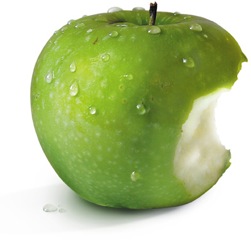Introduction Manual for the Body
- Maintain the same sleep schedule 7 days a week (getting 8 hours, if possible, or the optimal amount of time for the particular individual)
- “As creatures of habit, people have a hard time adjusting to changes in sleep patterns. Sleeping in on weekends can affect your biological clock.” (NIH)
- From a TCM perspective, Yin needs to be restored at night. To maintain the proper balance of Yin and Yang, the same sleep schedule should be maintained.
- Maintain a diet as similar to a Paleolithic diet as possible (N. Gedgaudas, Primal Body, Primal Mind)
- Grass-fed meat and fat, wild seafood; fibrous, non-starchy vegetables; fruits berries, nuts and seeds
- “It certainly stands to reason that if something on the grocery store shelf would not have looked like food to someone walking around with a loincloth fifty thousand years ago, it probably isn’t food for us now, either.” (Eaton et al. 1997)
- Note (should go without saying, but apparently needs to be said): eliminate foods that cause irritation (digestive issues, allergic reaction)
i. Digestive irritation (or rather the source of digestive irritation) can have long term effects including cancers of the digestive system, leaky gut syndrome, and ulcers, to name a few
- Eliminate or avoid processed food, sugars, and starches, soy, and cereal-based carbohydrates (N. Gedgaudas, Primal Body, Primal Mind)
- They contribute to heart disease, obesity, diabetes, cancer, many degenerative disorders, mental health and cognitive problems
- “We do not ever have to eat any sugar or starch of any kind at all in order to be optimally healthy”- our bodies can manufacture glucose from protein and fat in our diets
- Eliminate or avoid caffeine (ex. coffee, soda, energy drinks)
- Disrupts sleep, dental hygiene, digestion, and general physiological and mental health
- Maintain a daily routine as much as possible
- Ex. wake up, meditate/practice Tai Ji, eat breakfast, go to class, eat lunch, go to work, eat dinner, study, sleep
- This will help to minimize daily anxiety (NOTE: important to stay present and avoid autopilot)
- From TCM perspective, a routine helps promote and regulate energy flow, and helps to avoid overstressing the body and mind, maintaining harmony/balance
- Avoid overindulgence
- Ex. food, possessions, alcohol, watching TV
- Implement a mix of low and high impact aerobic exercise 3-4 hours per week (The New York Times, Health Guide)
- High impact: running, dance exercise, tennis, squash
- Low impact: walking, swimming, stair climbing
- Benefits: protection from heart attack, stroke, diabetes, dementia, depression, colon and breast cancers, and early death; build endurance; boosts HDL cholesterol levels; strengthens bones in the spine; helps maintain normal weight; improves sense of well-being
- Implement 30 minutes of weight training 2-3 times per week (The New York Times, Health Guide)
- Train larger muscles at high intensity à small muscles at lower intensities
- Perform both shortening and lengthening muscle actions
- Synchronize breath with movement (exhale at begin, inhale at end)
- Benefits: builds muscle strength while burning fat; helps maintain bone density; lowers risk for heart disease
- Implement a daily routine (or as often as possible) of contemplative, meditative, relaxation or “Internal Alchemy” practices
- Ex. Qi Gong, Tai Ji, Yoga, meditation, meditative walking, writing (whatever is the most effective stress reduction practice for the individual
- Stay mentally present/be mindful in daily activities (#9 will help)
- Improves general physical and mental health; improves personal relationships (Jon Kabat-Zinn, Center for Mindfulness)
- Attend to your experience, engaging all the senses (This is similar to the idea of experiencing the divine by observing our world and seeing true reality within it)
- Engage in a spiritual life, whether as part of a religious or spiritual community or as an independent venture
- Establishing a belief and value system and way of conceptualizing reality grounds us and inspires us to live more meaningful and purposeful lives
- Develop and nurture authentic loving relationships
- Sense of community has significant benefits to physiological and mental health
- From a TCM perspective “Emotionally, it is important to be happy and easy going and not hold grudges, so that the energy can flow freely and communicate between the external and the internal.” (Huang Di Nei Jing)
- Respect and synchronize with the natural rhythm and order of the universe
- Ex. Be active during times when Yang is dominant and rest when Yin is dominant
- Experience nature as often as possible to better understand and synchronize with it
- “In essence, health can be defined as a state wherein one’s life-rhythm is synchronized with the workings of the natural world. On the other hand, disease can be viewed as a disturbance of the synchronization between one’s life-rhythm and the eternal cycles and imperatives of Nature.” (Bruce Berkowsky, Joseph Ben Hil-Meyer Research, Inc.)
- Identify and pursue activities in which you use your signature strengths and virtues in the service of something much larger than you are
- Note: If not already known, identify signature strengths and virtues
- "The most satisfied people are those who orient their pursuits toward all three (approaches to life, 1. The pleasant life, 2. The good life, 3. The meaningful life), with the greatest weight carried by engagement and meaning." (Seligman, Authentic Happiness)

No comments:
Post a Comment